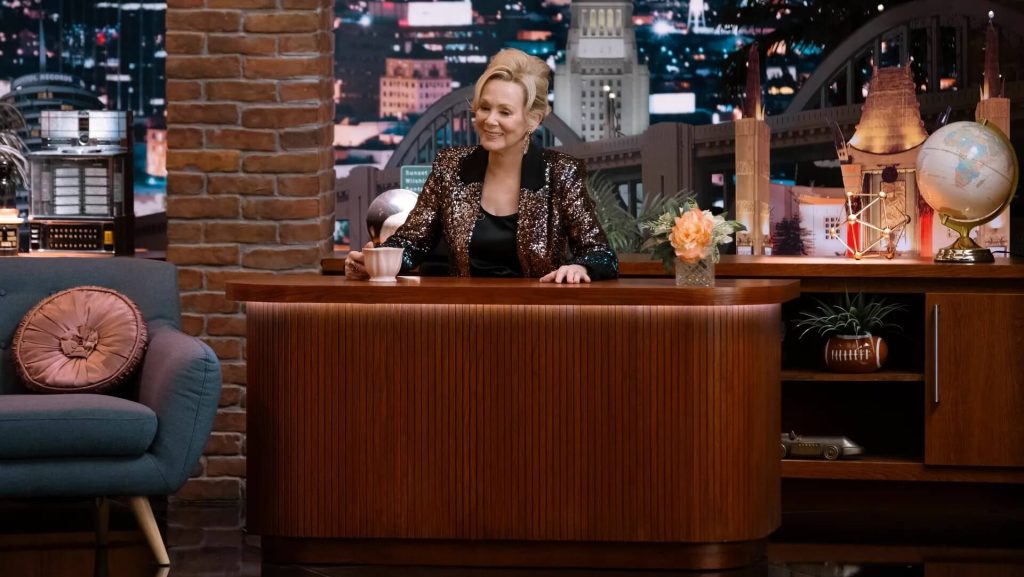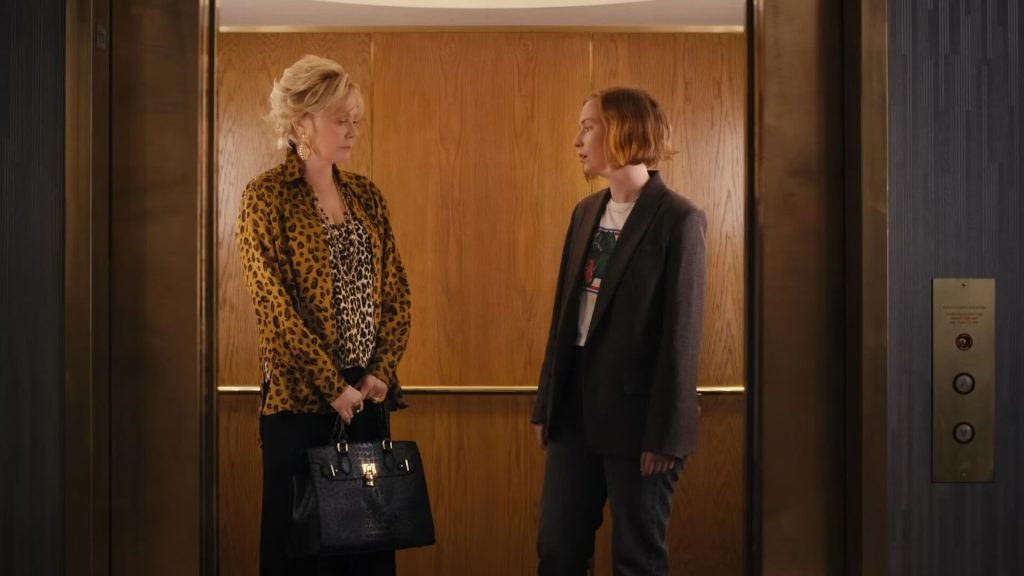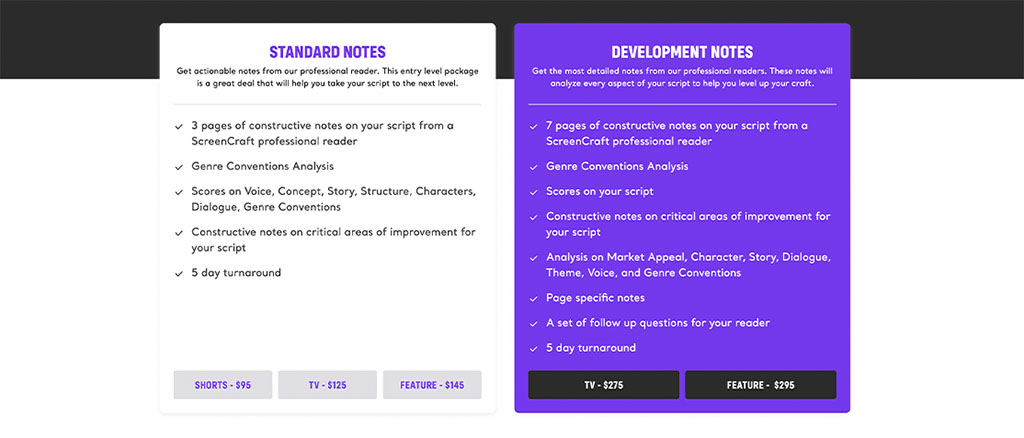Hacks screenwriters Lucia Aniello, Paul W. Downs, and Jen Statsky took home the 2024 Emmy for Best Writing in a Comedy Series for their third season of the hit Max show, and for good reason.
Deborah Vance (Jean Smart) and her on-again-off-again assistant and writing partner Ava Daniels (Hannah Einbinder) have a co-dependent relationship that is incredibly intense but pushes them to become the best versions of themselves. But all that ambition can only get them so far in Hollywood because of one, glaring factor: they are women.
The series, which has been nominated for 48 Emmys in three seasons, highlights the pain in the comedy of making people laugh in the industry. But how does it make those moments of tension work so well even if the screenwriters are using the same formula over and over again?
Let’s take a look at how the character’s motives and the reality of Hollywood (both in the series and real life) can influence the emotional impact of the season’s final moments. And be warned! I will be spoiling the final episode of Hacks Season 3, so read on with caution.
Motives Matter in Hacks
The best jokes work because the comedian takes the time and effort to craft a setup that is beautifully paid off with the punchline. Just like a well-timed joke, the best stories are often set up with motives.
Motives allow screenwriters to hook the audience into believing the emotional truth of a character’s journey, and the payoff is whether or not they achieve their goal.
Hacks does this extremely well in its third season as Deborah and Ava are striving to work their way up the Hollywood ladder of success. For Deborah, this means becoming the host of Late Night, a dream that stems from a happier memory of her family gathering around the TV at night to watch Johnny Carson. Ava hopes that helping Deborah achieve this dream will allow her to reach the career milestone of becoming the head writer of Late Night, a massive achievement for any writer.
When Deborah does become the host of Late Night, Ava believes that Deborah will bring her on board, and why should she think any differently? Their relationship has never been stronger, but healthy relationships don’t make entertaining shows. So, in accordance with the laws of good TV, Deborah betrays Ava. But, she has a reason.
“Deborah is someone who is a product of 50 years in a business that was really brutal to her. It’s impossible to forget those lessons she’s learned,” Statsky told the New York Times. “There was an internal struggle between her heart and her head. She does want Ava to be her head writer because she knows that they make the best work together. But her head says, “I’ve done this before and if there’s any excuse, they’re just going to look at the fact that I have a woman as my head writer and say, this is a bridge too far.”
But Ava doesn’t back down from Deborah’s choice of survival. Remember, this is a woman who has learned how to survive the belly of the beast and has a very clear motive to become a successful Hollywood writer. Feeling like she deserves this position—which we are told Ava does because she has been offered another head writing job—Ava becomes the same selfish career monster that Deborah is to get what she wants.
This type of double betrayal is tense, but there is also a twinge of comedy excellence in it. Most comedians will push a moment until the unfunny parts become funny again. Hacks push the tension and betrayal again and again, making it feel like an endless cycle that the audience can’t help but get sucked into because it will eventually boil over into something emotionally taute.
Read More: How To Craft a Cinematic Story That Shines on Screen
Hacks Proves You Can Rinse and Repeat
If you have watched Hacks, you understand that this cycle of betrayal and redemption is nothing new to the strained relationship between Deborah and Ava. But the formula works, so why fix something that isn’t broken?
The humor is not necessary in the repetition itself but in the context of what is being repeated. Whether the main characters are making up or breaking up, the audience understands that the vicious cycle the women have put themselves in will come back with consequences. They can’t escape the cat-and-mouse game they’ve created because it strangely makes them all the better creatives in the end.
It is the moment of waiting for the shoe to drop that keeps the audience emotionally invested in what is happening on screen and how it will come back to haunt the characters.
Again, Hacks knows how to craft an excellent setup, which is often the payoff to another moment. Yes, Deborah is the host of Late Night, but she also slept with her new boss before getting the job. Ava uses this as leverage to achieve her motive. The pattern is obvious, yet you want to see how Deborah responds. It’s a game of chess that has no end in sight.
After all, where is all the fun if you are not using it to create tension between the characters you are rooting for?
Read More: You Gotta Have Heart: The Power of Drama in Comedy

‘Hacks’
Hacks Finds the Humor in the Painful Truth
While most of the things that come out of Deborah’s mouth or Ava’s actions are quite funny, there is an underlying truth behind the “rinse and repeat” model of comedy storytelling in Hacks that is also present in other prestigious dramedies like The Bear.
Believe it or not, Hollywood hasn’t been the kindest to women (I know, crazy, right?). Deborah is a female comedian shaped by a male-dominated space that has brutalized her into becoming a selfish person. Even when Ava calls her selfish, Deborah replies, “Yes, I am, and you have to be.”
It’s a cruel truth that Deborah believes in, but Ava refuses to accept it as a version of the truth. What ensues in a comedy of will-be-errors. You can feel it in the confrontation between the two characters in the end when Ava blackmails Deborah into making her the head writer of Late Night.
When writing a dramedy set in an industry that you have some familiarity with, there is often a character who adheres to the more traditional idea of the industry and then their foil who is attempting to change the status quo to make something that is more accepting of a different reality. These two characters who come head to head can make some truly funny moments together, especially when they are trying to lighten the mood but create a dynamic where one will have to eventually emerge as the ultimate winner.
In Hacks, the screenwriters are pulling from a dynamic in Hollywood that does exist and is attempting to be changed. But, as you probably know, Hollywood is often resistant to change.
But your story doesn’t have to be rooted in the entertainment industry. Instead, it can be focused on the restaurant business, the circus, or a government job. Whatever you decide to focus on, make sure you understand the strained dynamic between the desire to change and the thing that is causing resistance. It can be a painful truth, but there is always a way to add humor to the darkest of truths.

‘Hacks’
—
While Hacks might not be a straight comedy, there is something delightfully funny in the drama shown between characters who are creating drama between themselves to achieve success. Having the audience understand why the characters are trying to achieve this level of success can help add humor to the lengths they are willing to go to ensure they get what they want.
There is irony embedded into the DNA of this meta-dramedy, and you can see how the writers want to carefully write the dialogue to make the characters painfully aware of the impact of what they are saying. They know there will be consequences, but it is better to be honest about what you want than hope people will do the right thing.
Read More: 101 TV Series World Prompts
Get actionable Comedy Notes from a professional reader with real industry experience!
The post Emmy-Winning ‘Hacks’ Screenwriters Show Us How To Write the Perfect Dramedy appeared first on ScreenCraft.
Go to Source
Author: Alyssa Miller

